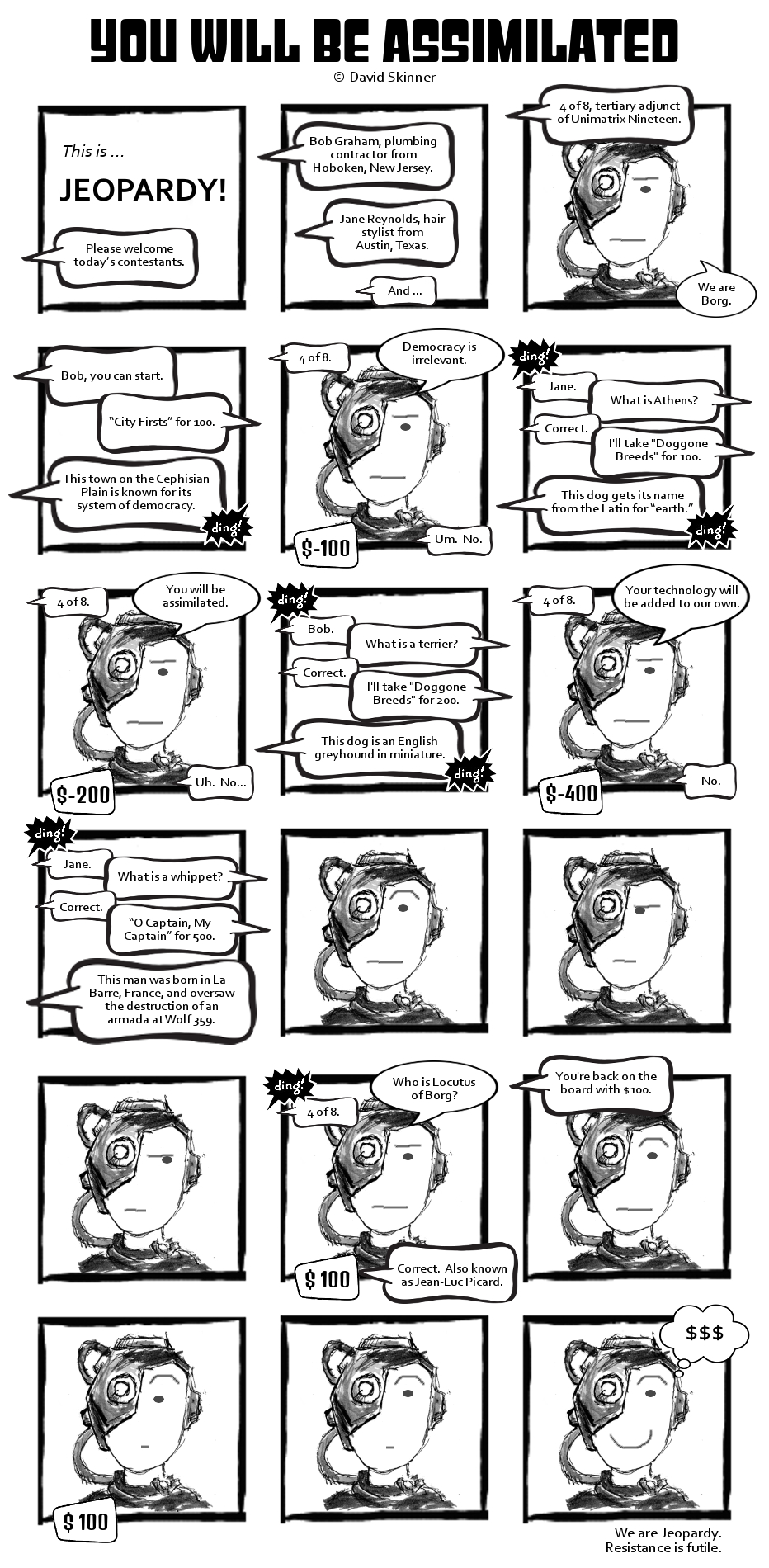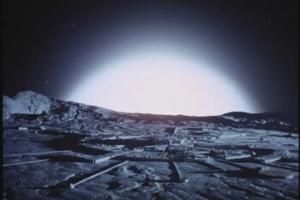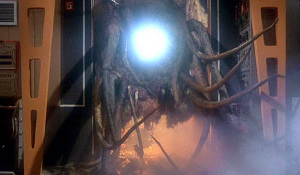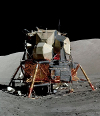Sundry & Motley
As of December
Thursday, December 17, 2020 4:52 pm
To begin with, I am terrible at avoiding the internet. I can manage an entire day without Twitter or blogs; but at night I always fall off the bandwagon. One of the reasons I am a teetotaller is that I never trusted myself not to be become a drunk. It's embarrassing that I need an internet fix.
You Will Be Assimilated
My Career as a Cartoonist
Tuesday, May 12, 2020 10:33 pm
Recently I noted that I have, on occasion, attempted to make clever-funny comics. Prompted by that note I have finally finished a certain comic, the rough pencil sketch of which has been stashed near my desk for years.
Since there is a lot of talking in the comic, I didn't directly ink the text. The text and layout and so on were done on PC (in GIMP). I did draw the one character, in ink and water (using nib and brush). I then scanned the drawing and integrated it with the layout.
My scanner is so old — an Epson Perfection 1200U — that a driver hasn't been released since Windows XP. Luckily I can use one of the later Epson drivers, although there's a bit of jiggering to do so. I thought it was already installed on my PC but apparently my Windows 7 64-bit forgot it was there, and I had to reinstall. Bothersome.
To keep the comic legible I had to make it too big to fit in the normal column of this blog. The image will overlap to the right but should be fine on most browsers. If not so on yours, download the image (via right-click) and view it elsewise.
Enjoy!
Since there is a lot of talking in the comic, I didn't directly ink the text. The text and layout and so on were done on PC (in GIMP). I did draw the one character, in ink and water (using nib and brush). I then scanned the drawing and integrated it with the layout.
My scanner is so old — an Epson Perfection 1200U — that a driver hasn't been released since Windows XP. Luckily I can use one of the later Epson drivers, although there's a bit of jiggering to do so. I thought it was already installed on my PC but apparently my Windows 7 64-bit forgot it was there, and I had to reinstall. Bothersome.
To keep the comic legible I had to make it too big to fit in the normal column of this blog. The image will overlap to the right but should be fine on most browsers. If not so on yours, download the image (via right-click) and view it elsewise.
Enjoy!
Derivative of Nictzin Dyalhis
Writing Another Chronicle of the Venhezian Heroes
Monday, May 4, 2020 10:11 pm
Somehow I became aware of The Sapphire Goddess: The Fantasies of Nictzin Dyalhis, a collection published by DMR Books in 2018. It collects all the fantasy stories of the unprolific Nictzin Dyalhis, who wrote primarily for Weird Tales between 1925 and 1940.
Two of Dyalhis's contributions to Weird Tales are science fiction: When the Green Star Waned (April 1925) and its sequel The Oath of Hul Jok (September 1928).
Two of Dyalhis's contributions to Weird Tales are science fiction: When the Green Star Waned (April 1925) and its sequel The Oath of Hul Jok (September 1928).
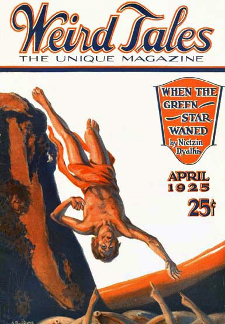 |  |
Nightmares and Loneliness
The first part of this was posted on September 13th. I decided to combine the two parts into a single post. I also changed the title.
My father and I didn't do a lot together. In part he was simply seldom around. He was in the restaurant business — as cook, as manager, as owner — and the hours were atrocious. He was also not given to fraternizing with his children.
In fairness to him, I was a difficult and solitary nerd.
The True Nature of Space: 1999
Sunday, December 1, 2019 1:25 pm
Part I
In fairness to him, I was a difficult and solitary nerd.
In Which I Criticize the Great Stanislaw Lem
Just to Set the Internet Straight
Thursday, August 8, 2019 11:03 am
At least two people on the internet — let's call them Bob and Ted — have been dissuaded from reading Stanislaw Lem. That is a shame; not least because, as usually happens on the internet, they are reacting to something that isn't true.
Well-Ordered Star Trek
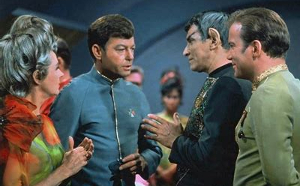 Of course I like Star Trek. I was only three when it first aired, so I didn't see it until it was in syndication and I was nearly ten; but from early on I was a genuine fan. I knew all the episodes. I built models of the ships. I read (and still possess) the paperback adaptations by James Blish. I even bought fold-out technical plans of the Enterprise.
Of course I like Star Trek. I was only three when it first aired, so I didn't see it until it was in syndication and I was nearly ten; but from early on I was a genuine fan. I knew all the episodes. I built models of the ships. I read (and still possess) the paperback adaptations by James Blish. I even bought fold-out technical plans of the Enterprise.
I was never a Trekkie, however; never deep in the lore.
Revisiting an Old Friend
Wednesday, May 22, 2019 3:45 pm

I was never a Trekkie, however; never deep in the lore.
Long Time Coming
A Lunar Excursion Module is not a rocketship.
An Unexpected Sight
Sunday, April 28, 2019 3:29 pm
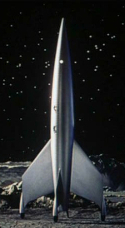 | Rocketships are romance. However grounded they were in speculative engineering, rocketships were ultimately acts of art. They were unreal transports to a heaven closer than God’s. They were graceful. Hopeful. Evocative. |
© 2004-26 David Skinner · All rights reserved
